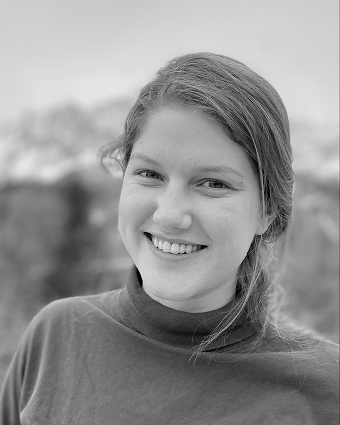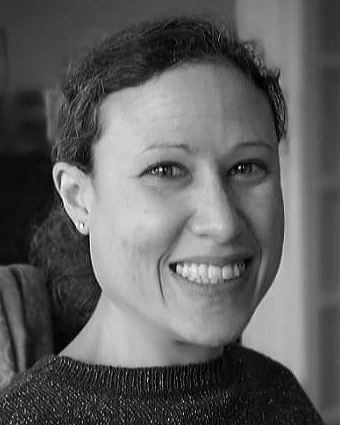About OxWell
The OxWell Student Survey is a collaboration between young people, schools, local authorities, the NHS and the OxWell research team at the University of Oxford’s Department of Psychiatry.
What is the OxWell Student Survey?
The OxWell Student Survey is a large-scale annual survey designed to measure the wellbeing (health and happiness) of children and young people aged 9–18 years old.
The questions in the survey address a range of issues relevant to wellbeing, including lifestyle and school life. Factors assessed include mental wellbeing, anxiety, indictors of vulnerability such as bullying and loneliness, and risky behaviour, school experience, substance usage, sleep patterns, safety including online safety, protective factors (such as exercise and healthy eating), and attitudes to accessing mental health support.
In participating counties in England, pupils fill out the anonymous survey online at their education setting (school or further education college). Every education setting that takes part receives a summary report of its own results, and access to LodeseekerTM to explore their data and generate other reports. Results can be compared with those from the rest of the county to identify strengths and weaknesses. The data is also available at a local area level and can be used to support settings for Ofsted inspections.
The research generated by the OxWell survey is now being used at a national, local and school level to help provide valuable insights into what students need to thrive, which factors influence their wellbeing and how they would like to access help if they have mental health difficulties.
What are we trying to find out and why?
Adolescence is a critical period for mental health and brain development. We want to ensure that school-aged children and adolescents can directly let us know how they are feeling and what might best help them. We are keen to find out which factors influence students’ wellbeing, what they need in order to feel happy and well, and how they would like to access support if they have mental health difficulties.
OxWell aims to better understand the mental health and wellbeing of school students by:
- Asking about their worries and how they might like to receive support
- Providing schools and services with information about what young people want
- Supporting positive change by providing insights into young people’s lives and experiences
The specific goals for the survey are to:
- Investigate prevalence and variability in pupil-reported mental health and wellbeing
- Measure population-level changes in school pupils’ mental health, social vulnerability and risk-taking behaviours across survey years
- Investigate pupils’ attitudes towards, and experience of, seeking mental health support
- Identify opportunities for developing and evaluating school-based mental health promotion, prevention and treatment interventions
- Gain insight into how adolescents view surveys like this one
Who is involved?
The University of Oxford’s Department of Psychiatry has built a vibrant team of researchers who work together to examine the findings from the OxWell data. The research project is led by Mina Fazel, who is a Consultant in Child and Adolescent Psychiatry and Professor of Adolescent Psychiatry.
A wide range of other stakeholders help to make the OxWell Student Survey possible in participating areas, including local authorities, the NHS, schools and colleges and, most importantly, young people themselves.
The development of the survey and its content is informed by extensive discussions with school staff and feedback from pupils, parents and other stakeholders from previous versions of the survey. In devising the survey questions, the OxWell study team also works closely with Public Health teams, Integrated Care Systems and Child and Adolescent Mental Health Services (CAMHS).
The research is funded by the Medical Research Council (MRC), the NIHR Applied Research Collaboration, the Oxford Health NIHR Biomedical Research Centre, the Westminster Foundation and contributions from local areas.
What happens to the data?
We work closely with schools, local authorities and mental health services to deliver the survey and then provide schools with tailored reports and access to aggregated data via the LodeSeeker® data tool.
The research generated by the OxWell survey is now being used at a national, local and school level to help provide valuable insights into what students need to thrive, which factors influence their wellbeing and how they would like to access help if they have mental health difficulties.
The OxWell 2021 survey
The OxWell 2021 survey ran from May to July 2021, and more than 30,000 pupils in England took part.
View 2021 Annual ReportThe OxWell 2020 survey
The OxWell 2020 survey ran in June and July 2020, during the UK’s first period of COVID-19-related partial school closures. A total of 19,000 pupils in Southern England took part.
View 2020 Brief ReportThe OxWell 2019 survey
The first OxWell survey was carried out in Oxfordshire from May to July 2019 as a pilot project; a total of 4,390 pupils from 36 schools took part.
View 2019 Brief ReportAdditional information
Background and geographical reach
The OxWell Student Survey started as a pilot project in Oxfordshire in 2019. In 2020 the survey covered 11 local authorities in the counties of Oxfordshire, Berkshire, Buckinghamshire, Gloucestershire and Wiltshire. This expanded participation allowed us to learn about a range of important mental health and wellbeing factors, including pupils’ experience of COVID-19, school closures and associated challenges.
For the 2021 edition, the survey’s reach was substantially increased through the recruitment of new local authority partners, including: Berkshire West; Buckinghamshire; East Berkshire (Frimley); Liverpool City; Oxfordshire; and Milton Keynes. More than 30,000 students participated from 180 schools.
We aim to continue to increase participation in the future.
About the survey design
Pupils participate in the survey online during school time using a unique login. No pupils’ names, addresses or dates of birth are collected. This is intended to encourage open and accurate responses, including to some sensitive questions on vulnerability, risk-taking behaviour and social risk factors (e.g., domestic abuse), while protecting participants’ privacy.
Due to data protection and ethical requirements, exact data on ethnicity, gender identity and disability cannot be collected. However, some demographics are measured using proxies or less detailed response options.
Who takes part in the survey?
The target population for the OxWell Student Survey is children and adolescents aged 9–18. To reach this group, OxWell recruits school pupils at state-maintained and independent schools and Further Education Colleges (FECs) in several local authorities across England. The survey aims to ensure a diverse and representative school population sample by three means: first, by recruiting pupils via schools in a range of socioeconomic deprivation areas; second, by using an opt-out model with parents to ensure maximum participation; and thirdly, by not trying to identify pupils to encourage accurate responses.
To assess diversity, the survey includes immigration status, three categories for gender identity and proxies for socio-economic status. To assess representativeness, analyses compare the survey sample to school-level information made available by the UK government, such as deprivation indices of the school location and the proportion of students accessing free school meals.
The survey questions
The OxWell Student Survey is designed to help us understand the relationship between social and behavioural risk factors, mental health outcomes and care-seeking in a school-aged population. There are around 300 questions in the survey. They address a variety of contextual and lifestyle factors, track in-school mental health interventions and assess attitudes to sensitive data and data linkage, while minimising the collection of personal data.
There are two age-appropriate versions of the survey: one version is for Years 5 & 6 and one version is for Years 7 – 13 (including FECs). The categories of questions asked in the survey are described in relation to each survey year and age-matched version in table 1.
We use many measures of mental health and wellbeing every year to allow comparison with baseline and potentially older surveys. However, the survey is also continually being refined with new questions being added for each edition to address current events and novel hypotheses. This ongoing development is informed by our research team, collaborators and stakeholders.
How the survey works in practice
All primary schools, secondary schools and FECs in participating counties are invited via their local authority to sign up to participate in the OxWell Student Survey using an online form.
Schools that sign up to take part receive a study information pack from the OxWell research team. Schools then inform parents about the survey and provide them with instructions on how to opt-out their child.
During a designated school period, schools provide survey information (a 3-minute video) and login details to pupils who have not been opted-out. Pupils happy to take part then log in, read the instructions, provide online assent (or consent for those aged over 16) and complete the survey. To mitigate difficulties for younger pupils with the online assent process, pupils and school staff are informed about the assent procedure, the assent questions are presented one at a time, and pupils are instructed to ask their teacher if they do not understand a question. The entire session takes most pupils about 30 mins, depending on the survey version (it is divided into three age-appropriate versions) and responses to ‘gateway’ questions that might probe participants with further questions.
The Team

Dr Mina Fazel
Professor of Adolescent Psychiatry
Department of Psychiatry, University of Oxford
The main focus of my research is on how to improve access to mental health interventions for children and adolescents.

Emma Soneson
Postdoctoral Researcher
Department of Psychiatry, University of Oxford
Emma Soneson is a postdoctoral researcher at the University of Oxford interested in the intersections between mental health and education.
ORCID: https://orcid.org/0000-0003-1666-3012
Twitter: @emma_soneson

Dr Simona Skripkauskaite
Postdoctoral Researcher
Department of Experimental Psychology & Department of Psychiatry, University of Oxford
Simona is a postdoctoral researcher whose interests include atypical development, mental health, social attention, and neurodiversity.
Twitter: @DrSkripka

Dr Holly Bear
Postdoctoral Researcher
Department of Psychiatry, University of Oxford

Tanya Manchanda
PhD student
University of Oxford

Rasanat Fatima Nawaz
PhD student
Department of Psychiatry, University of Cambridge

Rohan Borschmann
Visiting Academic
Department of Psychiatry, University of Oxford

Dr. Galit Geulayov
POSTDOCTORAL RESEARCHER
Department of Psychiatry, University of Oxford

Dr Gaby Illingworth
Postdoctoral Research Assistant
Department of Psychiatry, University of Oxford

Dr Simon White
Senior Investigator Statistician
MRC Biostatistics Unit, University of Cambridge

Dr Wakithi Mabaso
Masters Student
Department of Population Health, University of Oxford

Dr Karen L. Mansfield
SENIOR POSTDOCTORAL RESEARCHER
Department of Psychiatry, University of Oxford

Dr Maria Loads
Clinical Psychologist, Reader/Clinical Tutor and NIHR Research Fellow
Department of Psychology, University of Bath

Dr Elaine Brohan
Global mental health researcher
Centre for Global Mental Health, King’s College London

Danielle Newby
POSTDOCTORAL DATA SCIENTIST
Centre for Statistics in Medicine, University of Oxford

Pauline Foster
Managing Director
Foster & Brown Research

Elaine Purse
Managing Director
Foster & Brown Research

Janette Fullwood
Director
Brighter Futures Together

Shona O'Leary
Research Group Administrator
University of Oxford
Coming soon